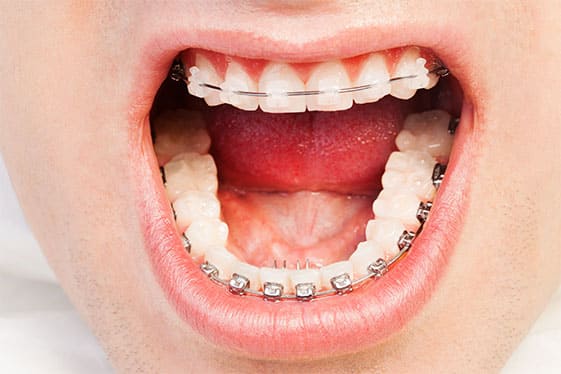-
-

ADULT ORTHODONTICS
Should You Use Mouthwash Before or After Brushing?Brushing and flossing are the foundation of a good oral hygiene routine, but mouthwash can also be a useful addition...

SELECTING DENTAL PRODUCTS
Soft Vs. Hard Toothbrush: Which One Should You Use?The toothbrush has come a long way. As the American Dental Association (ADA) notes...
-
Science & Innovation
- Oral Health and Dental Care | Colgate®
- Oral Health
- What Is Saliva And Why Is It Important?


Saliva makes many normal, everyday activities possible, thanks to its unique composition. Without saliva stimulating your taste buds, you'd miss out on the experience of a delicious meal. Plus, chewing and swallowing would be not only difficult — but dangerous. So, what is saliva made of and why is it so important? Learn more about the components of your saliva and how they work together to serve your oral and bodily health.
Where Does Saliva Come From?
Your mouth, nose, tongue, lips and even voice box are covered with hundreds of microscopic salivary glands, according to the Memorial Sloan Kettering Cancer Center. These minor salivary glands help release and retain the fluid in the mouth. But your major salivary glands do most of the heavy lifting when it comes to salivary flow. According to a study published in the International Journal of Oral Science (IJOS), the three main salivary glands located in your cheeks, jaw and the floor of your mouth are responsible for producing 90 percent of your saliva. These glands — the parotid, sublingual and submandibular — produce saliva and circulate it in your mouth through ducts, as noted by the Memorial Sloan Kettering Cancer Center.
What Is Saliva Made Of?
A healthy person produces 600 milliliters of saliva every day, according to the IJOS study, and approximately 99 percent of that saliva is water. The remaining 1 percent contains a multitude of components, such as sodium, calcium, magnesium, potassium, immunoglobulins, proteins, enzymes and mucins, reports a paper in The New Zealand Dental Journal. These components of saliva, while only a small percentage of it, serve unique functions that are central to sustaining your health. Proteins
- Per an article in the International Journal of Contemporary Dental and Medical Reviews (IJCDMR), proteins are the second leading component of saliva after water. Though proteins make up only a fraction of saliva's composition, they serve numerous functions. Proteins work as a first line of defense in eliminating oral bacteria and help form a protective layer on your teeth. They are also thought to aid in the ability to taste by interacting with taste receptors in your mouth.
Enzymes
- The enzymes found in saliva are specific proteins responsible for sparking chemical reactions in your body that help begin the digestive process. For example, these enzymes assist in breaking down starches and fats in your mouth, according to the paper in The New Zealand Dental Journal.
Mucin
- You might equate mucin to the buildup of mucus that happens when you get a cold, but the mucin found in saliva aids in digestion. This specific protein helps you eat and swallow safely by keeping the mouth lubricated, as the paper in The New Zealand Dental Journal notes.
Electrolytes
- Electrolytes are minerals in your body, such as calcium, phosphorous and magnesium, reports the National Institutes of Health (NIH). Inside your mouth, these particular minerals help strengthen and harden your enamel, which in turn helps reduce your risk of cavities, according to the IJCDMR article.
The Importance of Saliva
All the components of saliva work together to help you eat, speak and keep your mouth clean every day. Here are just some of the many functions of saliva, as noted by the American Dental Association (ADA):
- Defending against cavities
- Washing away food debris
- Allowing you to swallow and taste
- Keeping your teeth strong
What's more, saliva could play a useful role in diagnosing health problems. Doctors can already use saliva to test for HIV infection and may be able to use it to detect oral cancer and genetic conditions in the near future, reports the NIH.
Because saliva is so important to your oral and overall health, it's important to consult your dentist or doctor if you are suffering from an inadequate saliva flow, also known as dry mouth. The ADA reports that sucking on sugar-free candy or gum can stimulate saliva production. However, you should seek professional advice if the problem persists to prevent more serious problems, such as tooth decay, from developing.
Related Products

Helping dental professionals
More professionals across the world trust Colgate. Find resources, products, and information to give your patients a healthier future











